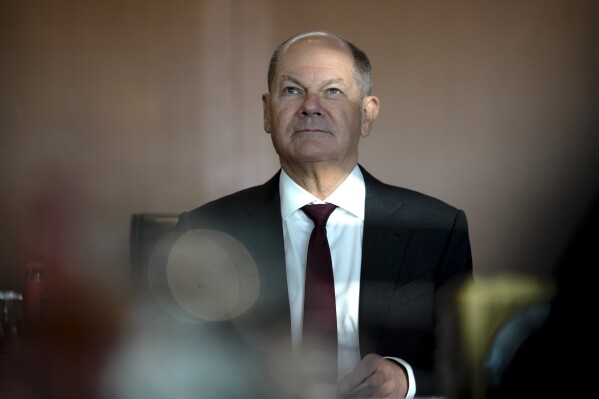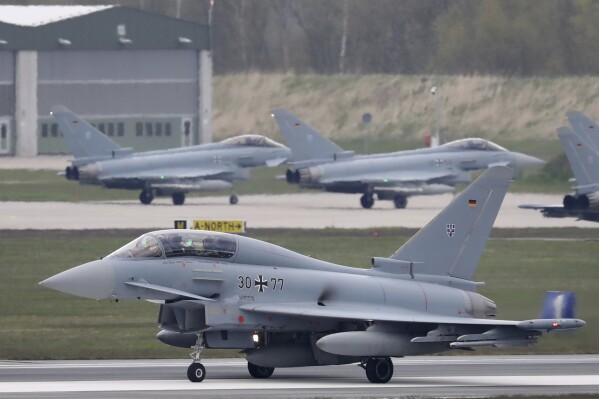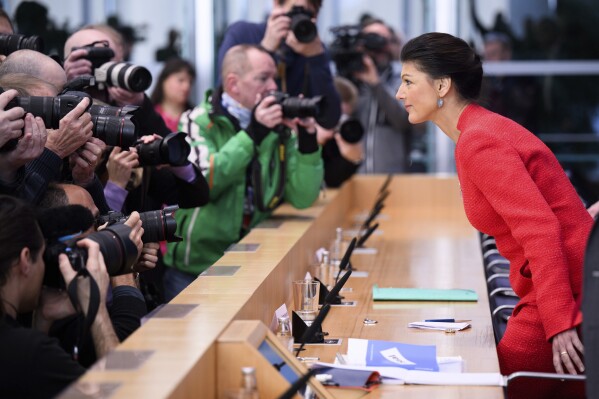Germany’s Scholz warns of extremists stoking rage as farmers protest and discontent is high
BERLIN (AP) — German Chancellor Olaf Scholz called for calm and a readiness to accept compromises on Saturday as the country faces protests by farmers angry about a plan to cut their fuel subsidies. He warned of extremists stoking rage against a backdrop of wider discontent.
Farmers have blocked major roads and snarled traffic across the country with their tractors as part of a week of protests against the plan to scrap tax breaks on diesel used in agriculture. They went ahead with the demonstrations although the government watered down its original plan, saying that a car tax exemption for farming vehicles would be retained and the cuts in the diesel tax breaks would be staggered over three years.
The German chancellor said in a video message that “we took the farmers’ arguments to heart” and insisted the government came up with “a good compromise,” though farmers continue to insist on fully reversing the subsidy cuts. He also said officials will discuss “what else we can do so that agriculture has a good future.”
The plan to scrap the tax breaks resulted from the need to fill a large hole in the 2024 budget. The farmers’ protests come at a time of deep general discontent with the center-left Scholz’s three-party government, which has become notorious for frequent public squabbles. Scholz acknowledged concerns that go well beyond farming subsidies, saying that crises, conflicts and worries about the future are unsettling people.



“Arguments belong to democracy,” Scholz said. “But I know, including from personal experience of recent months, that arguments can wear people down and stoke uncertainty. We must improve this year.”
Scholz added that compromises are also an essential part of democracy. But now, he said, “rage is being stoked deliberately; with a gigantic reach, extremists are decrying every compromise, including on social media, and poisoning every democratic debate.”
“This is a toxic mixture that must concern us, which very much preoccupies me too,” he said.
The far-right Alternative for Germany party has gained strength over the past year and is currently in second place in national polls, with support of over 20% — behind the mainstream center-right opposition bloc but ahead of the parties in Scholz’s coalition. Germany faces European Parliament elections in June and three state elections in September in the formerly communist east, where Alternative for Germany is particularly strong.
Authorities have warned that far-right groups and others could try to capitalize on the farmers’ protests, and the demonstrations faced scrutiny after a much-criticized earlier incident in which a group of farmers prevented Vice Chancellor Robert Habeck from disembarking a ferry in a small North Sea port as he returned from a personal trip to an offshore island.
Scholz thanked the head of the German Farmers’ Association for distancing himself clearly from “extremists and some copycats who call for an ‘uprising’ and waffle about ‘overthrowing the system.’”
“If protests that are legitimate in themselves tip over into sweeping rage or contempt for democratic processes and institutions, then we all lose,” he said. “Only those who despise our democracy will benefit.”
Disclaimer: The copyright of this article belongs to the original author. Reposting this article is solely for the purpose of information dissemination and does not constitute any investment advice. If there is any infringement, please contact us immediately. We will make corrections or deletions as necessary. Thank you.
